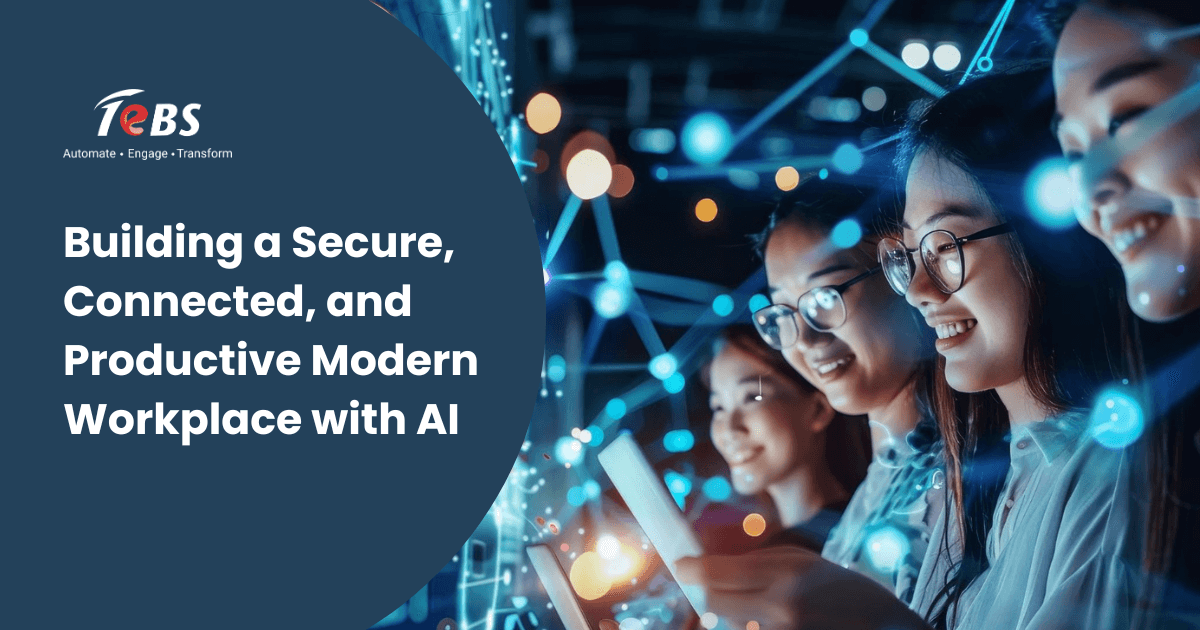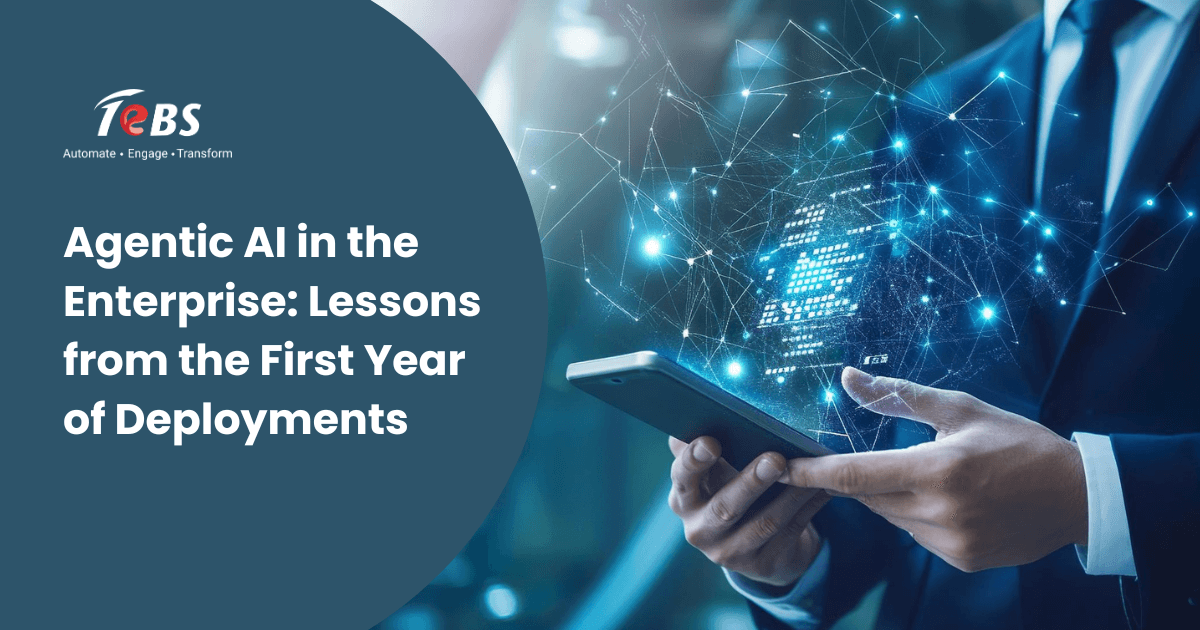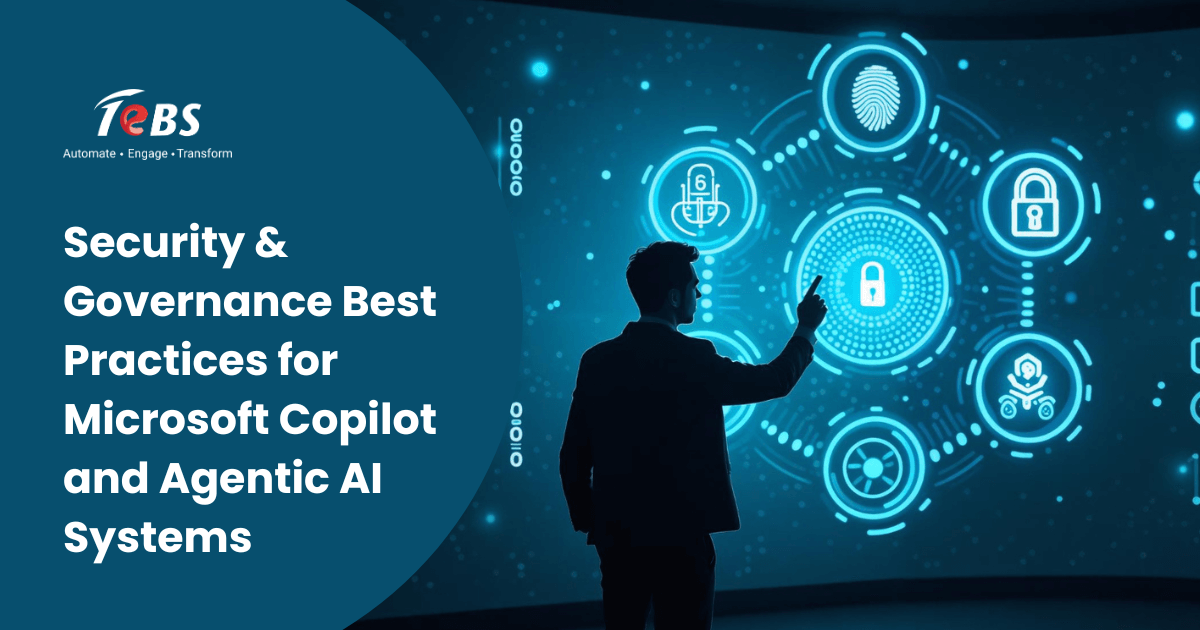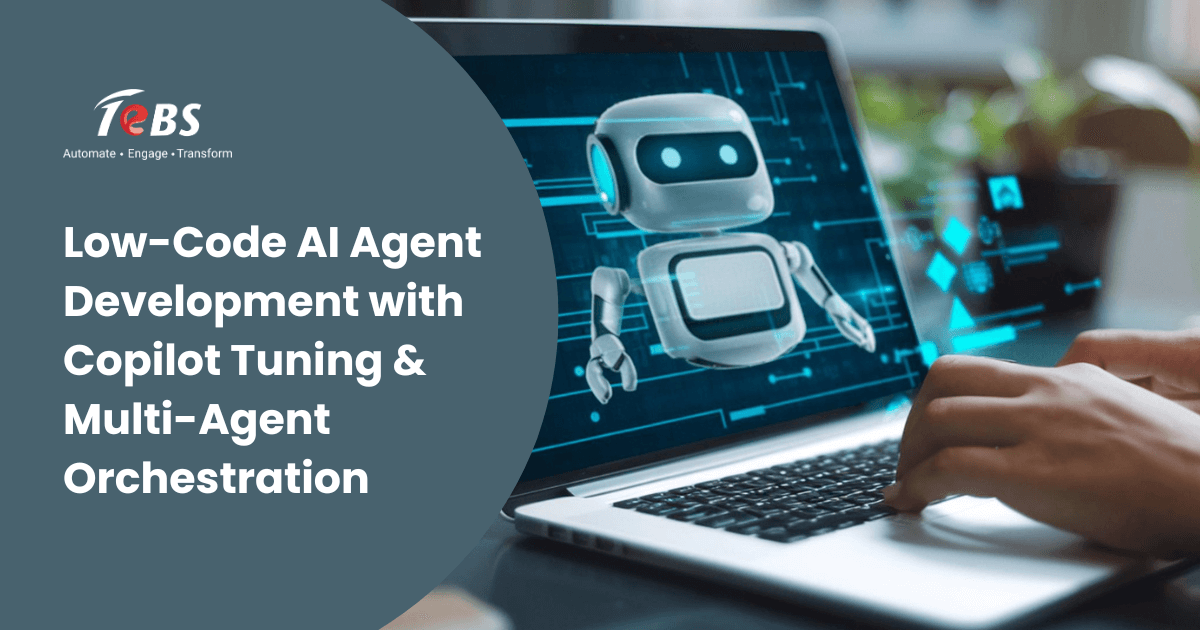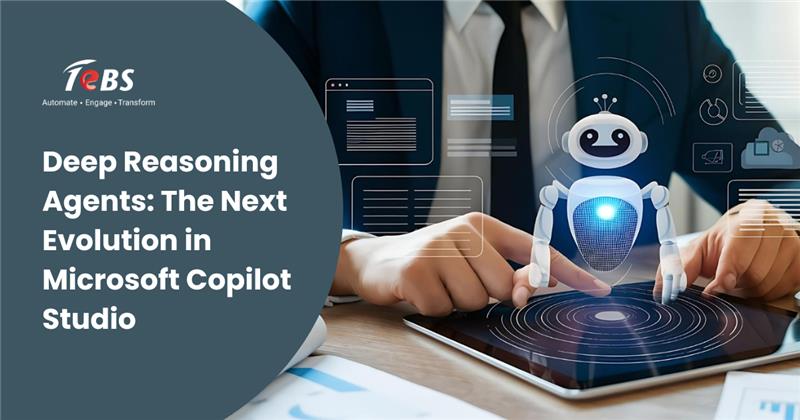Summary
AI, cloud, and Zero Trust together create a secure, connected, and productive modern workplace for hybrid teams. With Microsoft Copilot and generative AI handling summaries, drafting, and contextual insights, employees can focus on higher-value work while Teams, Viva, and SharePoint unify collaboration. Power Platform and intelligent automation streamline end-to-end workflows, and strong data foundations—engineering, analytics, and visualization—turn operational signals into real-time decisions. A practical rollout starts by assessing your estate, enforcing Zero Trust, integrating Copilot, automating with Power Platform, upskilling users, and measuring outcomes. The business impact is stronger security and compliance, higher productivity, lower operating costs, greater agility, and a better employee experience—enabled by TeBS’ AI-powered workplace solutions.
Introduction: Redefining the Workplace with Intelligence
The workplace has evolved beyond physical boundaries and static routines. Enterprises are embracing a new paradigm that is intelligent, connected, and adaptive. Artificial Intelligence (AI) lies at the core of this transformation, empowering teams to work smarter, stay secure, and collaborate seamlessly across geographies. By integrating AI-driven tools, cloud platforms, and automation, organizations can reimagine how work gets done while enhancing productivity and ensuring enterprise-grade security.
A secure and connected workplace is no longer optional; it is essential for business continuity, innovation, and resilience. AI technologies enable companies to automate workflows, predict risks, and personalize employee experiences, building a foundation for future-ready operations. Explore TeBS AI Services.
The Importance of a Secure and Connected Workplace
Security and connectivity form the backbone of any modern enterprise. With hybrid and remote work becoming the norm, the digital workplace must ensure that data, users, and devices remain protected without limiting accessibility.
A secure and connected ecosystem:
- Protects digital assets through identity-based access, encryption, and real-time threat detection.
- Ensures seamless communication across departments, geographies, and devices.
- Improves efficiency by unifying collaboration tools, data systems, and workflows.
- Learn more: Microsoft 365 Copilot — Overview
How AI Enhances Productivity and Collaboration
AI acts as a catalyst for improving workplace efficiency and teamwork. From intelligent automation to personalized assistance, it redefines how employees engage with work.1. Intelligent Assistance
Tools like Microsoft Copilot use generative AI to summarize meetings, draft emails, and provide contextual insights, helping employees focus on strategic tasks rather than repetitive work.2. Smart Collaboration
AI enhances virtual collaboration by auto-scheduling meetings, suggesting relevant documents, and integrating workflows across platforms like Microsoft Teams and SharePoint. Build this on a digital workplace with Microsoft Teams & Viva and improve content lifecycle with AI-driven document management.3. Data-Driven Decision-Making
AI analyzes large volumes of operational and customer data to generate actionable insights, empowering leaders to make informed business decisions quickly.4. Predictive Operations
Machine learning models anticipate issues before they occur, such as system failures or security breaches, ensuring smoother operations.5. Enhanced Employee Experience
Key Technologies Driving Modern Workplaces
A modern workplace is built upon an ecosystem of integrated technologies that support security, scalability, and collaboration. Three core enablers stand out:1. Cloud Computing
Cloud platforms provide the agility to store, share, and access data securely from anywhere. They form the foundation for hybrid work by enabling real-time collaboration, scalability, and cost efficiency.
2. Artificial Intelligence (AI)
3. Microsoft Copilot
Together, these technologies create a secure digital environment that enhances innovation and enables continuous improvement.
Practical Implementation Strategies for Enterprises
Implementing an AI-powered modern workplace requires a strategic and phased approach.
1. Assess the Current Environment
Evaluate existing infrastructure, security posture, and collaboration tools to identify areas where AI and cloud integration can deliver the greatest impact.2. Establish a Secure Foundation
Adopt Zero Trust security models to ensure identity-based access control, endpoint protection, and data encryption across devices and users—reinforced by AI cybersecurity on Microsoft 365 & Azure.3. Integrate AI Tools Seamlessly
Introduce AI-driven assistants like Microsoft Copilot to existing Microsoft 365 environments for smoother adoption and user familiarity.4. Automate Workflows
5. Train and Upskill Employees
Conduct AI readiness workshops and continuous training to help teams adapt to intelligent tools effectively.6. Monitor and Optimize Continuously
Use analytics to measure the impact of AI initiatives and refine processes to maximize productivity and ROI.
This roadmap ensures that transformation aligns with both organizational goals and employee adoption.
Benefits of a Connected and Secure Workplace
A truly modern workplace delivers far-reaching benefits across every aspect of business performance.
- Enhanced Security: AI-driven threat detection and automated compliance protect sensitive data and reduce human error.
- Increased Productivity: Employees can focus on strategic initiatives while automation handles repetitive tasks.
- Improved Collaboration: Unified communication platforms enable seamless teamwork across locations and departments.
- Cost Optimization: Cloud-based scalability reduces IT infrastructure costs and improves resource utilization.
- Greater Agility: AI insights enable faster responses to market changes and customer needs.
- Employee Empowerment: Personalized digital experiences and intelligent assistants enhance engagement and satisfaction.
Read our blog: Experience the Future of Customer Service with AI Agents
Traditional Workplace vs AI-Driven Modern Workplace
| Aspect | Traditional Workplace | AI-Driven Modern Workplace |
| Security | Reactive measures, manual monitoring | Predictive threat detection, Zero Trust model |
| Collaboration | Siloed communication tools | Unified collaboration via Teams, SharePoint, and Copilot |
| Productivity | Manual, repetitive workflows | Automated, intelligent task execution |
| Cost | High IT infrastructure and maintenance | Optimized cloud-based operations with lower overhead |
| Scalability | Limited to physical infrastructure | Highly scalable through cloud and virtual environments |
Future Outlook: AI and Productivity in the Modern Workplace
The future of work is defined by synergy between humans and intelligent systems. AI will continue to evolve from being a supportive tool to an active co-creator assisting in decision-making, content generation, and workflow optimization.
Emerging trends include:
- Generative AI in Everyday Workflows: AI copilots will become integral in every business function, from customer service to financial planning.
- Predictive Workforce Analytics: AI will analyze employee performance and engagement data to create personalized growth paths.
- Hyper-Automation: Integration of AI, robotic process automation (RPA), and machine learning will redefine efficiency.
- AI-Driven Security: Self-learning security systems will detect, prevent, and respond to cyber threats autonomously.
- Sustainable Work Environments: AI will help organizations optimize energy use, digital operations, and sustainability reporting.
Enterprises that embrace AI now will be better positioned to lead in a rapidly changing digital economy.
A secure and connected workplace powered by AI represents the next step in business evolution. It empowers organizations to protect data, streamline collaboration, and enhance workforce productivity. When AI, cloud, and automation come together, enterprises gain a robust foundation for innovation and long-term growth.
By transforming traditional workflows into intelligent digital ecosystems, businesses can unlock new levels of agility, efficiency, and resilience. TeBS enables this transformation through AI-driven workplace solutions that combine security, scalability, and collaboration to meet modern enterprise demands.
Empower your workforce and accelerate business transformation with TeBS’ AI-powered workplace solutions. Contact our experts at [email protected] to begin your journey toward a secure, connected, and intelligent workplace.
FAQs
1. What defines a modern workplace?
A modern workplace integrates cloud, AI, and collaboration technologies to enable secure, connected, and flexible work environments. It focuses on enhancing productivity, data security, and employee experience across hybrid and remote settings.
2. How does AI make the workplace more productive?
AI automates repetitive tasks, provides intelligent insights, and enhances collaboration through virtual assistants like Microsoft Copilot, helping employees focus on higher-value work and decision-making.
3. What are the key benefits of a connected workplace?
A connected workplace improves communication, accelerates workflow approvals, enhances collaboration, and ensures secure data sharing across teams and devices.
4. How can enterprises secure their modern workplace?
Organizations can adopt a Zero Trust security model, enable multi-factor authentication, and use AI-driven threat detection tools to ensure data and network protection.
5. What tools are essential for a modern AI-powered workplace?
Core tools include Microsoft 365, Microsoft Teams, SharePoint, Microsoft Copilot, and AI-driven document management or workflow automation solutions.
6. How can organizations implement AI in their workplace?
Enterprises should start with pilot projects, integrate AI tools with existing systems, and provide training for employees to ensure smooth adoption and measurable impact.
7. What are some successful examples of modern workplace transformations?
Many nonprofit and community service organizations have adopted AI-powered cloud solutions to digitize processes, improve collaboration, and enhance service delivery securely and efficiently.

